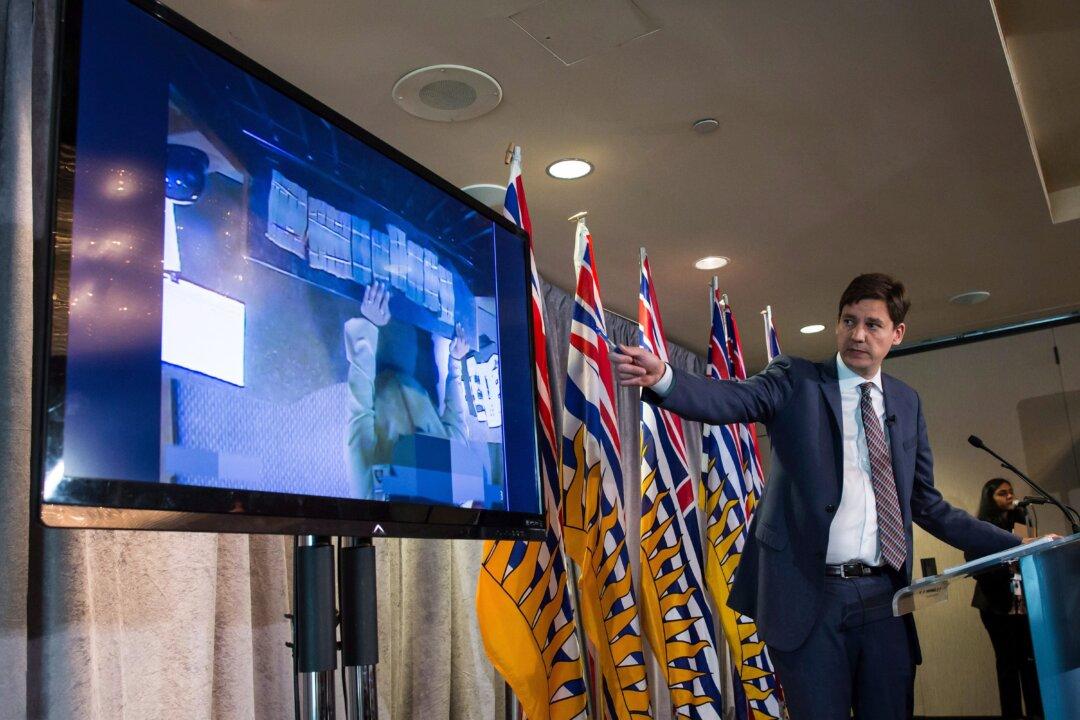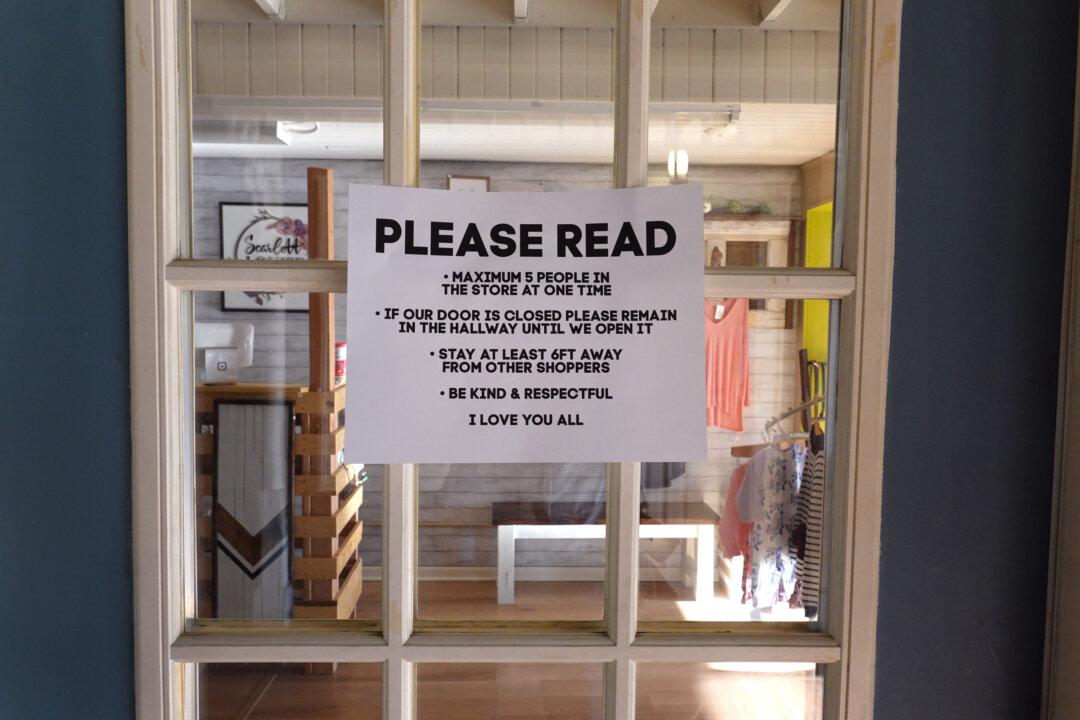For the first time since it began just over a year ago, the ongoing inquiry into money laundering in British Columbia is adding former and current cabinet ministers to its witness list—11 in all.
Among current NDP ministers scheduled to testify are Attorney General David Eby, assistant deputy minister responsible for B.C. gambling Sam MacLeod, and deputy minister to the premier Lori Wanamaker, according to the commission’s website. Former Liberals include Christy Clark, who was premier from 2011 to 2017, and cabinet ministers Rich Coleman, Mike de Jong, and Kash Heed.





